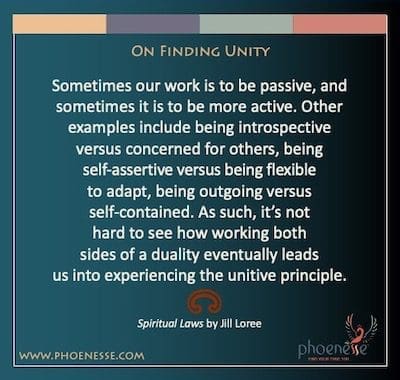When we deconstruct any duality, we will find that it’s never true that one opposite is all good and the other is all bad. For each half can be either. Each option has the possibility of being productive and healthy, or alternatively, destructive and unhealthy.

So sometimes our work is to be self-assertive. Meanwhile in another situation, we’re better served being flexible and willing to adapt. At times we need to be quiet and introspective, and other times call us to focus our concern on others. Sometimes we will be outgoing, and sometimes we will be self-contained.
One way to know which behaviors or actions are most in accordance with divine law in a given moment is by determining, first and foremost, whether they hurt anyone. For if something is to the disadvantage of anyone else, it can’t truly be to our advantage.
Over time, working both sides of any duality will eventually lead us into experiencing unity. Where we get crossed up with duality is by favoring one position over another and thinking there are ironclad rules about how we should always behave.
Next Chapter
Return to Spiritual Laws Contents


